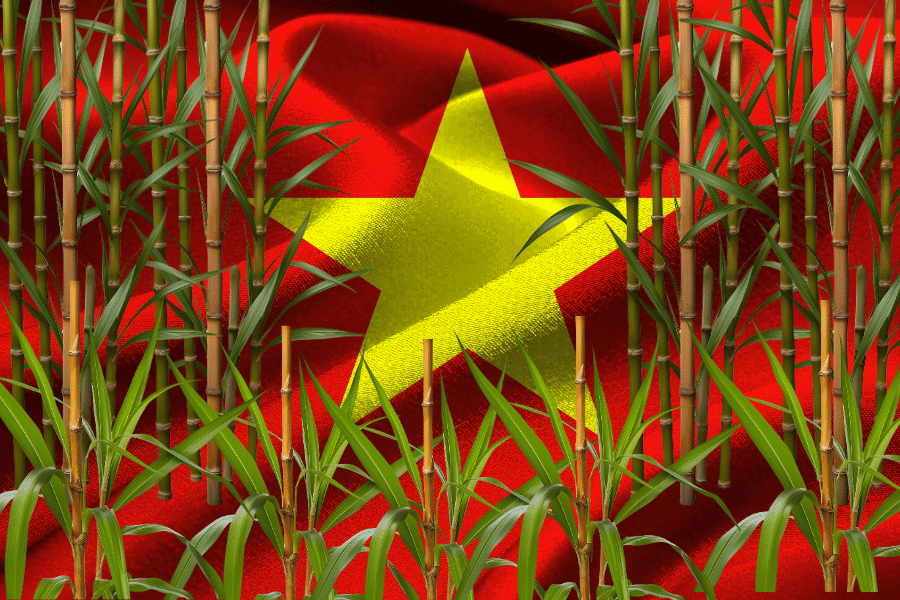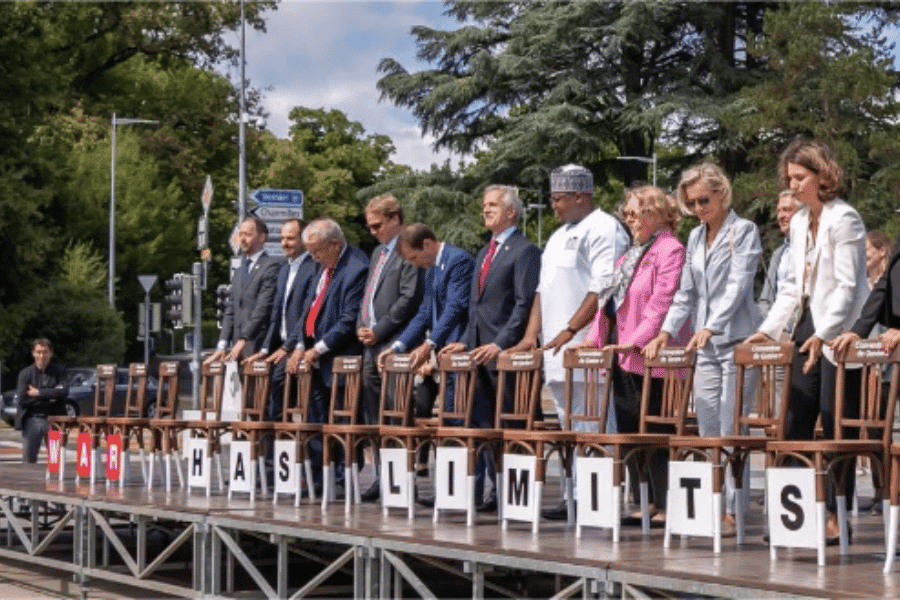
by John West | 23 Sep 2024 | Asia, China, Decoders, Economy, Politics
Vietnam has long had to dance between powerful allies and enemies. That’s left it poised to maneuver in the political chaos that now swirls around it. The Vietnam flag waves behind a screen of bamboo. (Illustration by News Decoder) This article was produced...

by Daniel Warner | 16 Sep 2024 | Decoders, Educators' Catalog, History, Human Rights, Politics
Russia didn’t attend the 75th birthday of the Geneva Conventions. Are the treaties that govern how nations conduct war still relevant in today’s chaotic world? Members of the UN Security Council mark the 75th anniversary of the signing of the Geneva...
Use this piece to explore international relations, geopolitics, the politics and history of conflict. Last month marked the 75th Anniversary of the Geneva Conventions. Russia didn’t attend. Political Scientist Daniel Warner decodes whether the treaties that govern how nations conduct war are still relevant in today’s chaotic world.
Exercise: Debate. Split students into groups. In each group, divide students into two teams. One will defend the Geneva Conventions, the other is against the conventions. In preparation, watch this video and share the ICRC website. Each team undertakes research to build an argument for their case. Ask students to debate the issue. After the debate, discuss the difficulties teams had in supporting their arguments.

by Alistair Lyon | 31 Jul 2024 | Asia, Decoder Replay, History, Politics
Change in leadership in the two countries brings the possibility of rapport. But there is a long history of hostility that is hard to overcome. Supreme Leader Ayatollah Ali Khamenei, left, speaks after giving his official seal of approval to newly-elected President...

by Daniel Warner | 1 Dec 2023 | Educators' Catalog, History, Politics, United States
Henry Kissinger died on the 29th of November. Our correspondent remembers the one time he had the opportunity to question him directly about his lauded career. U.S. Secretary of State Henry Kissinger being congratulated 16 October 1973 by U.S. President Richard Nixon...
Henry Kissinger’s death made headlines at the end of November 2023. This famous diplomat sparks controversy. How should he be remembered? Correspondent Daniel Warner reflects on his brief interaction with Kissinger in Geneva back in 1999.
Exercise: Read the article with your class, then review headlines announcing Kissinger’s death from various media sources. How does the wording of these headlines differ? How does that difference change the way a reader may perceive Kissinger’s legacy? Use this activity as a conversation starter to discuss the power of word choice in media bias and framing.

by Enrique Shore | 27 Sep 2023 | Educators' Catalog, Politics, Russia, Ukraine, World
Ukraine leader Volodymyr Zelensky criticized the UN for failing to stop Russia’s invasion. But to do more would mean changing how the United Nations works. Ukraine’s president Zelensky criticizes the United Nations for not doing enough to stop the war, during...
ND photojournalist Enrique Shore takes us to the 78th UN General Assembly in his piece covering Ukraine leader Volodymyr Zelensky’s speech condemning Russia’s invasion of his country. Is holding Russia accountable for its “unprovoked aggression” possible given the current United Nations structure?
Exercise: Read the article with your class, then have students analyze this political cartoon (symbolism, captions, dialogue, etc.). What parallels can students draw between the information in the article and the symbols in the political cartoon? How likely is reform of the current UN structure? Students can then create their own political cartoons depicting the structural tensions detailed in the article.





